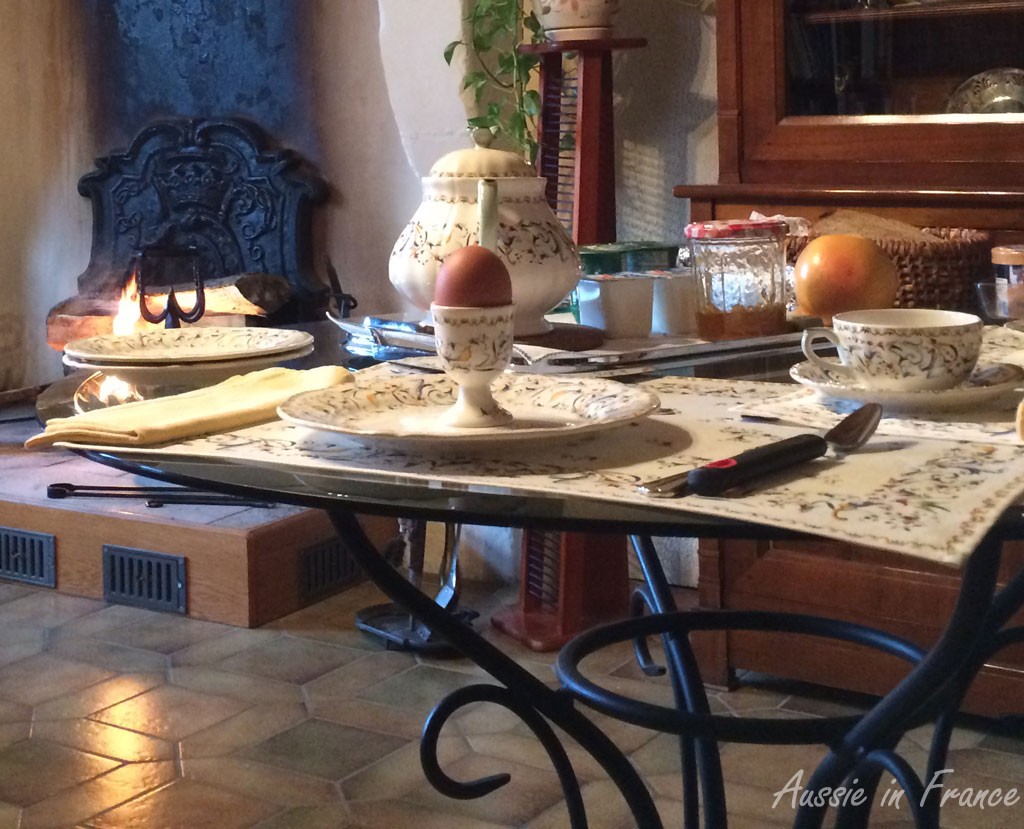You’d wonder why “go cook yourself an egg” would have the meaning of “get stuffed” or more politely “go jump”, wouldn’t you? I googled it and am not convinced by any of the explanations.

You can insult someone by calling them an egg: Quel œuf ce type as in “What a blockhead”. In this case, I guess it refers to a person’s egg-shaped head. An egghead, as we understand it in English, however, is an intello! Quite a different concept.
Very boringly, everyone seems to put their eggs in the same basket – mettre ses œufs dans le même panier Now, I wonder which came first, the chicken or the egg ? or as the French say, c’est l’œuf et la poule.
And what do you think the English equivalent is of Il est à peine sorti de l’œuf i.e. he’s only just come out of the egg?
We can have our eggs scrambled (brouillés), soft-boiled (à la coque or mollet), hard-boiled (durs), fried (sur le plat or au plat) or poached (pochés). An egg-flip is a lait de poule (literally hen’s milk which sounds a bit odd). Who would have guessed that one ?
Surprisingly, an egg-timer is minuteur or sablier (hour-glass – from sable = sand) with no reference to eggs at all.
However œufs de lump are lump-fish roe (useful, that one) and œufs en chocolat or de Pâques are chocolate or Easter eggs (now, that’s better).
Un blanc d’œuf is an egg white and un jaune d’œuf is a yolk. Nothing fancy there. Les blancs battus en neige are stiffly-beaten egg whites (neige = snow).
Just one more – our very colourful expression “to egg on” comes out in French as pousser à or inciter à.
Do you have any more eggy expressions in English or in French ? And if you have a good explanation for the origin of “va te faire cuire un oeuf“, I’d love to hear it!




I think you’ve covered the expressions I’m familiar with!
“Être plein comme un œuf” peut signifier être rempli ( une salle par exemple) ou être ivre.
“As full as goog (egg)” means you’ve had too much to eat in English!
Well, my mother’s family in Q’ld (though her father was a then recent import from England) used that expression to mean drunk.
Fascinating post, Rosemary! Best wishes, Pamela
When someone starts with “vas te faire” something, you know you’re in trouble, regardless of what ends the phrase.
To say someone is tough, or hard-boiled, you actually say “il est cuit dur, ce mec.”
Now, that sounds possible. Instead of “va te faire f …”. I had never heard “il est cuit dur, ce mec”. Thank you!
Il est à peine sorti de l’œuf would be ‘he’s green’ or ‘he’s wet behind the ears’ in English I assume.
Speaking of eggs I’ve just made a pavlova for Bernard’s party (the one you brought some wine back for).
Yes, our expressions have nothing to do with eggs at all
I hope the wine was appreciated! (and the pavlova)
My school French 50yrs ago told me that ‘va t’en’ was not very polite, I wonder if the addition of extra words to va te ….. faire cuir un oeuf might be like saying Oh Christmas or Sugar rather than the more offensive Oh Christ or Sh*t ?
Yes, I agree. That is what Taste of France has suggested (but you didn’t see her comment before because it was the first time she did so and I need to approve readers’ first comments). Va-t’en is about the equivalent of “get lost”.